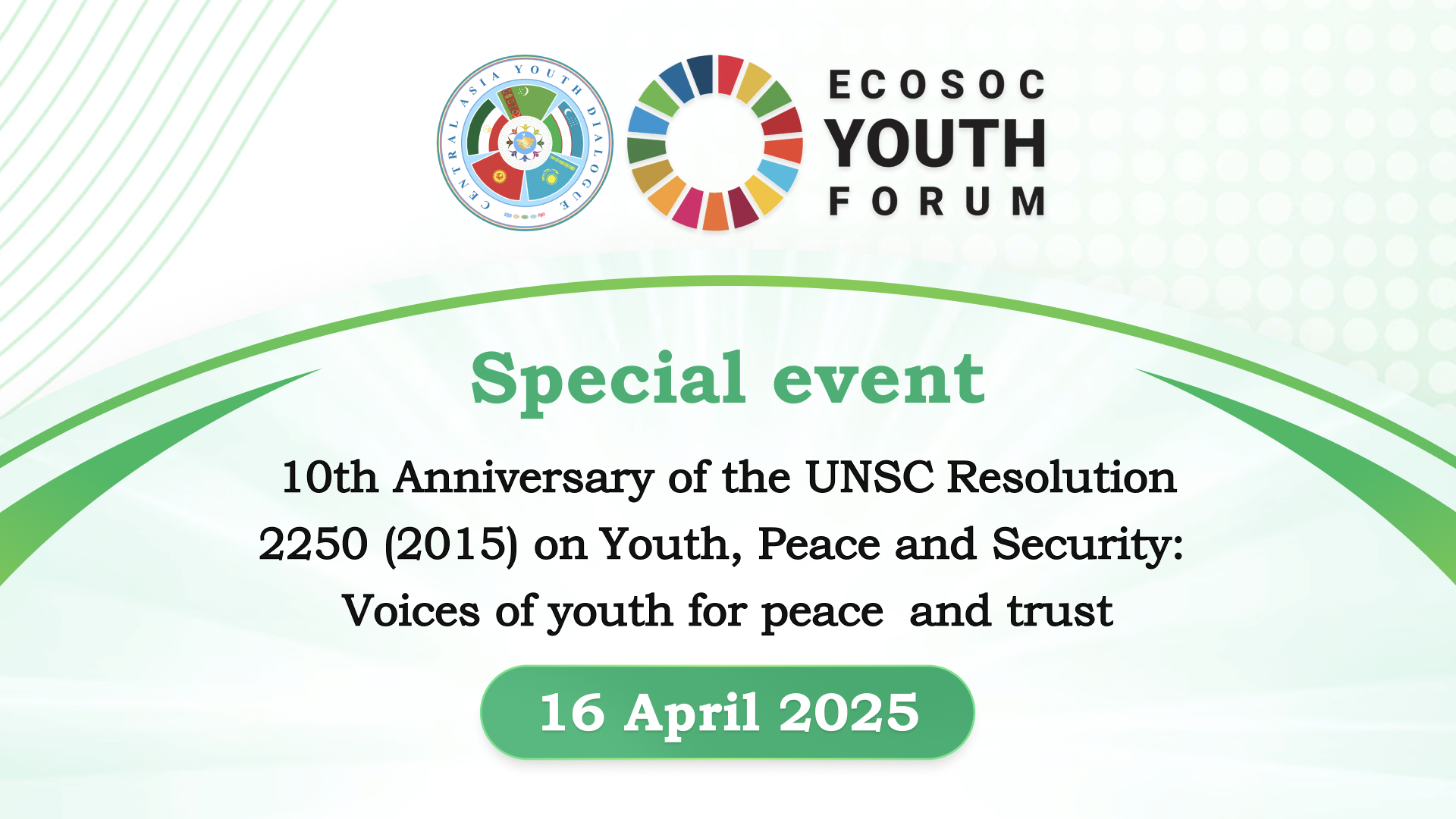Central Asian Youth Dialogue Reaches New Heights at the United Nations
As the second Youth Dialogue for Central Asia, set to take place on April 16 at the United Nations Headquarters in New York, approaches, attention turns to the strategic importance of this format for the entire region. Organized by the Ministry of Foreign Affairs and the Ministry of Education of Turkmenistan within the framework of the prestigious ECOSOC Youth Forum, the event carries special significance in light of the region’s unique demographic profile and the consistent policies of its states to unlock the immense potential of their youth.
Central Asia stands out as one of the youngest regions in the world: about half of its 80 million population is under the age of 30. This impressive demographic potential — expected to grow — opens a unique window of opportunity for what is known as the «demographic dividend.» With the right investments in education, healthcare, job creation, and skills development, the young and energetic workforce can become a powerful engine of innovation, economic growth, and social progress. However, realizing this potential requires targeted efforts, strategic vision, and, importantly, regional cooperation.
In this context, during the Revival of the New Epoch of the Powerful State, Turkmenistan’s youth policy takes on a special role. As President Serdar Berdimuhamedov has repeatedly emphasized, comprehensive support for the younger generation, the creation of favorable conditions for its development, access to quality education, and the fulfillment of creative and professional aspirations are an unquestionable national priority. This strategy, rooted in the humanistic traditions of the Turkmen people and initiatives of the National Leader of the Turkmen people, Chairman of the Halk Maslahaty Gurbanguly Berdimuhamedov, finds practical implementation in the enhancement of legislation and the realization of major educational, social, and infrastructure projects. The successful inaugural Central Asian Youth Dialogue held in Arkadag in October 2023 laid a strong foundation for continued engagement.
The upcoming meeting in New York, dedicated to the 10th anniversary of UN Security Council Resolution 2250 on youth, peace, and security, provides a key platform for youth to be seen not just as beneficiaries, but as active architects of peace, trust, and sustainable development. In an era of rapid technological change and global challenges, youth — with their adaptability, digital skills, and fresh perspectives — can offer innovative solutions and build bridges of understanding.
The creation and institutionalization of platforms such as the Youth Dialogue for Central Asia is an essential part of strategies aimed at effectively harnessing the demographic potential. These platforms not only encourage the exchange of best practices and ideas but also contribute to a shared vision of the future, strengthening regional identity and trust. They empower youth to participate in shaping regional and global agendas, contribute to policymaking, and implement collaborative projects aligned with the Sustainable Development Goals.
The fact that this second Dialogue is being held during the year proclaimed by Turkmenistan as the International Year of Peace and Trust is deeply symbolic. It highlights the direct connection between investing in the younger generation and building a peaceful, stable, and prosperous future. Turkmenistan’s policy of positive neutrality, widely recognized and supported by the international community, provides a favorable environment for constructive regional cooperation aimed at strengthening neighborliness, understanding, and mutual benefit.
In this way, the upcoming Central Asian Youth Dialogue represents a major step toward uniting regional efforts in unlocking the unique human capital of the region — a strategic investment in Central Asia's future as a zone of peace, trust, cooperation, and sustainable development. Its success will depend on continued joint efforts to institutionalize the dialogue and implement initiatives that turn demographic potential into real progress and prosperity for all peoples of the region.




